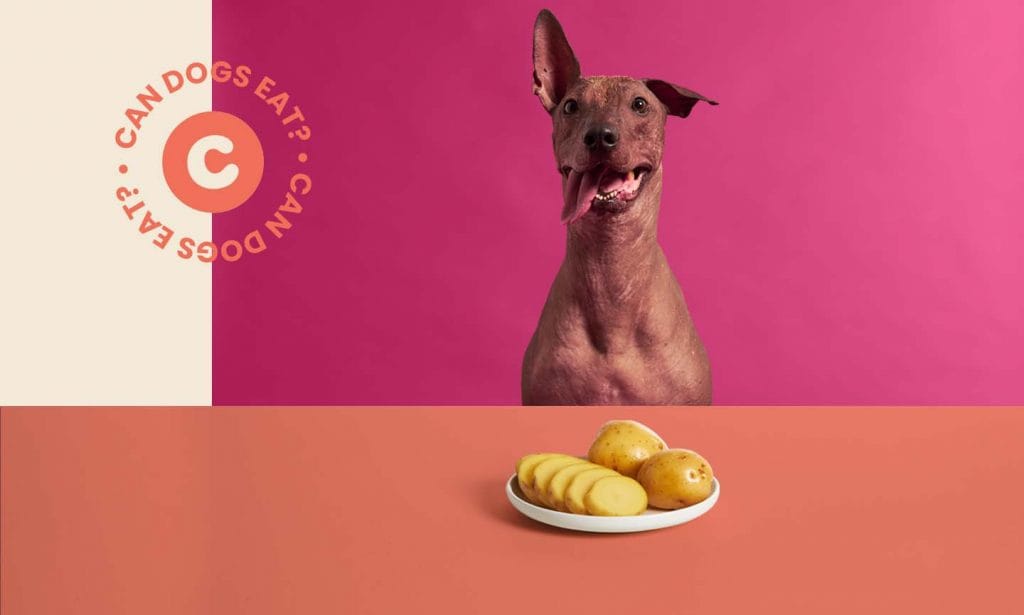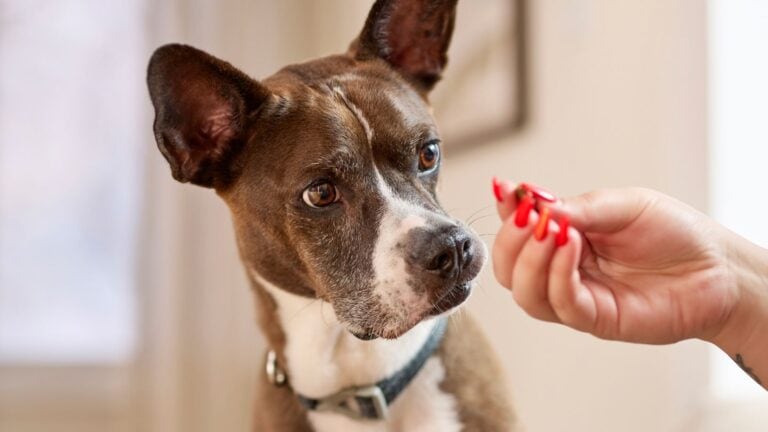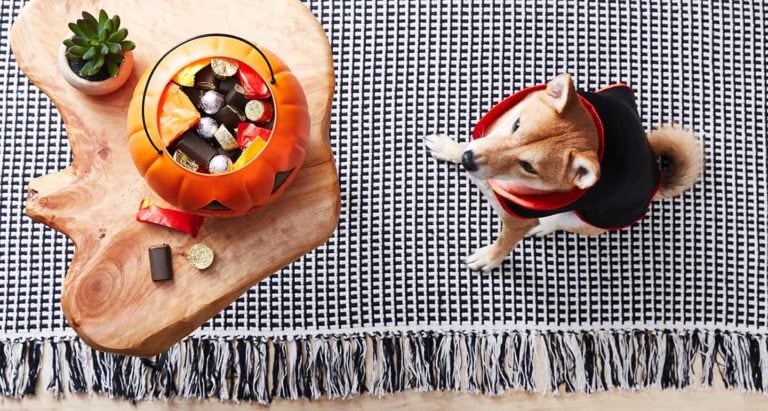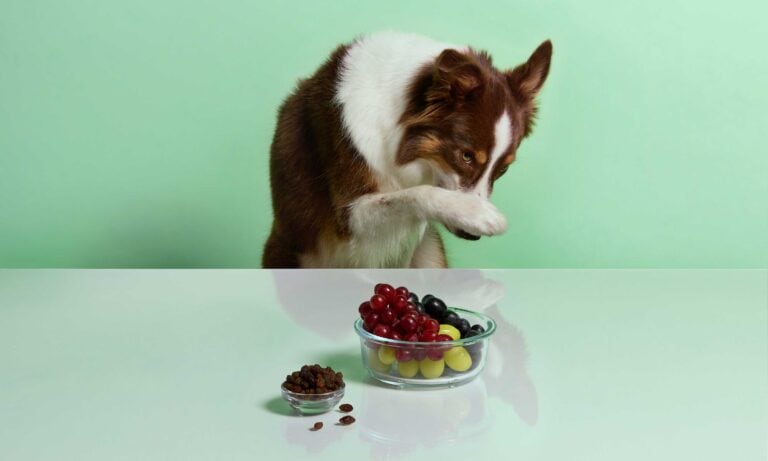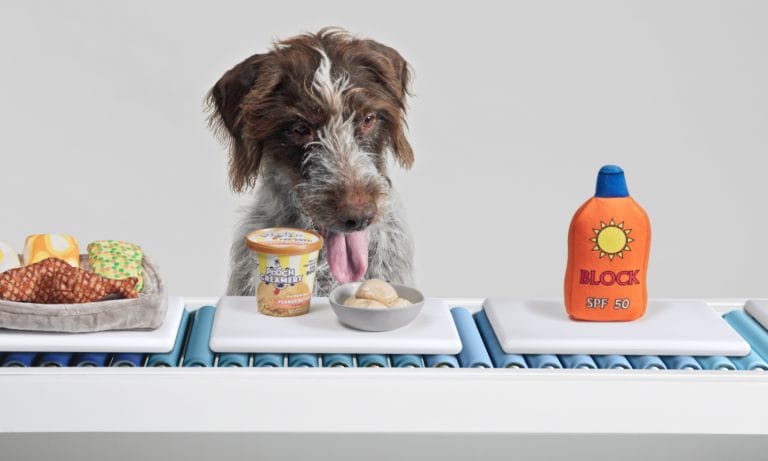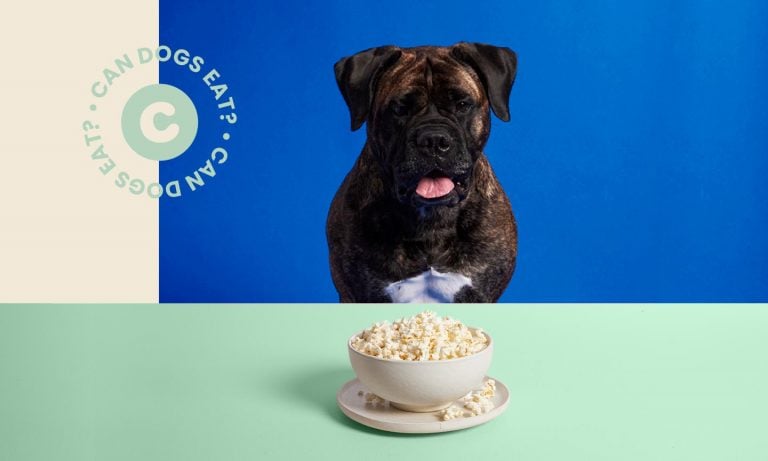Can dogs eat potatoes? Yes, they can! So long as they’re well cooked, are not green and served up plain—sorry, pups, no fries for you!—your dog can enjoy potatoes boiled, mashed, steamed or baked. And potatoes can also be a healthy treat in moderation.
We spoke with Dr. Amanda Williams, chief veterinarian and medical director of Furry Friends Adoption, Clinic & Ranch, for tips and advice on how to include potatoes in your pup’s diet.
Benefits of Potatoes for Dogs
Are potatoes good for dogs? Yes! When fed in moderation, potatoes can provide your dog with several nutritional benefits.
- High in vitamin C, an antioxidant that helps eliminate potentially harmful free radicals and can help reduce inflammation and cognitive aging.
- Good sources of vitamins A and B6, which help support your dog’s immune and nervous systems, among other benefits.
- Potatoes also contain beneficial iron, magnesium, calcium and potassium.
Risks of Feeding Potatoes to Your Dog
While dogs can eat potatoes as a treat or mixed in with their regular food, Dr. Williams has a few things to keep in mind before feeding your dog potatoes:
- Dogs should only eat cooked, plain potatoes. While those mashed potatoes at Thanksgiving dinner are delicious for humans, they’re not good for dogs. Avoid feeding your dog any potatoes that have milk, cream, butter, oil, cheese, salt or other seasonings.
- Portion control is important. Consuming too many potatoes, which are high in carbohydrates, can cause obesity and other health problems for your pooch. Potatoes, and treats in general, should not make up more than 10% of your dog’s daily caloric intake.
- Raw potatoes can be dangerous. Potatoes are in the nightshade family of vegetables, which means they contain solanine, a compound that is toxic to some dogs. Cooking potatoes reduces the level of solanine, making them safer to eat. Raw potatoes are also difficult to chew, so they’re a choking hazard and may obstruct the gastrointestinal tract.
- Peel potatoes before cooking. While potato skin isn’t toxic to dogs, it contains oxalates, a naturally occurring compound that can harm your pup’s kidneys if eaten too frequently or in large quantities.
- Never feed your dog potatoes with green skin. You can detect an elevated level of solanine in a potato by examining its skin. If the skin is green, that means there is solanine. Look for a potato that doesn’t have green skin, and peel it before feeding it to your dog.
- Start small. If your dog has never eaten potatoes, start by feeding them a small amount to see if they have a negative reaction, like an upset stomach or allergic reaction. Then you can slowly increase the quantity over time.
How to Feed Potatoes to Your Dog
You should always consult with your vet before serving potatoes to determine the right portion size for your dog. Even a healthy treat like potatoes should be factored into your dog’s optimum daily balanced diet. Dr. Williams says potatoes can be:
- Baked, steamed, boiled or mashed. Just make sure you serve them plain.
- A small snack. Go ahead, let your pup lick the spoon!
- Mixed in with their regular food. Williams recommends hiding the potatoes underneath their dry or wet food, so they must work to get to it—meaning they’ll eat their dog food on the way to reaching that yummy treat.
Frequently Asked Questions
Q:Can dogs eat sweet potato?
A:Yes, in moderation, dogs can eat sweet potato. In fact, sweet potatoes are healthier for dogs (and people!) than white potatoes. However, just like white potatoes, sweet potatoes need to be cooked and peeled first. You should never feed your dog raw sweet potato since they can be difficult to chew, upset their stomach or may cause intestinal blockage.
Q:Can dogs eat potato chips?
A:No, dogs should not eat potato chips because they are cooked in oil. Many packaged potato chips also contain a lot of salt and other seasonings that are not good for dogs.
Q:Can dogs eat potato skin?
A:No, Dr. Williams doesn’t recommend potato skin for dogs since it contains oxalates, a naturally occurring compound that can harm your pup’s kidneys if eaten too frequently or in large quantities.
Q:Can dogs eat mashed potatoes?
A:Yes, dogs can eat mashed potatoes if they’re plain, meaning they don’t contain salt, cream or seasonings that can be toxic to dogs like garlic and onion powder. Dr. Williams says to avoid instant mashed potatoes because they require milk, which can cause digestive problems for dogs who are lactose intolerant.
Q:Can dogs eat French fries?
A:No, dogs should not eat French fries because they are cooked in oil and fried. French fries are often seasoned with salt, too, which is not good for dogs.
Top Dog Food & Treats with Potatoes
Potatoes (either the white or sweet kind) are a common ingredient in dog food and treats. Here are some of our favorites:
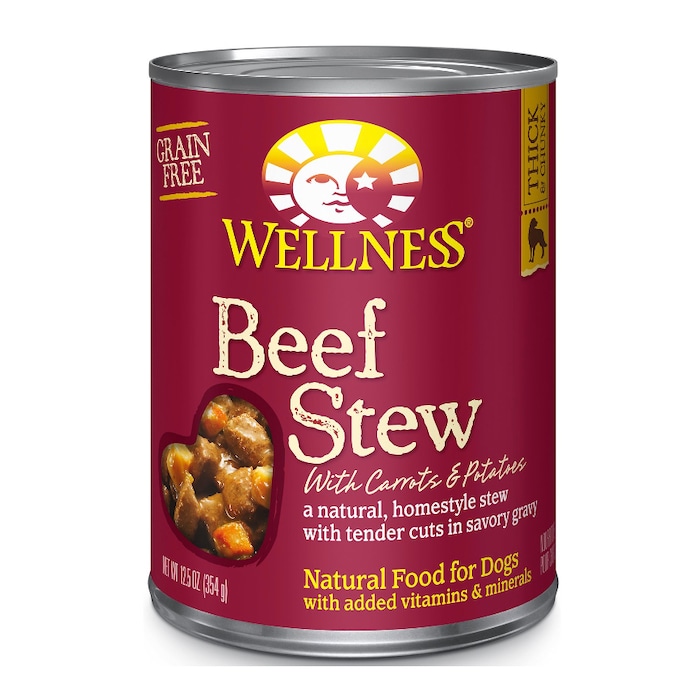
A Savory Stew
This thick and chunky stew has potatoes, beef, carrots and peas all cooked in a yummy gravy for a taste that dogs love.
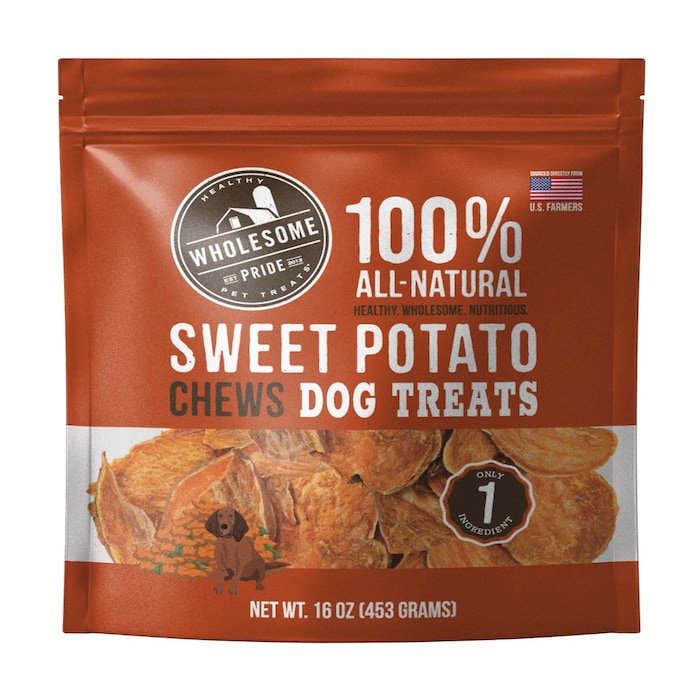
Dehydrated Sweet Potato Chews
Have a dog who loves to chew? Try these 100% all-natural, dried sweet potatoes with a texture that satisfies your pup’s craving for chewing.
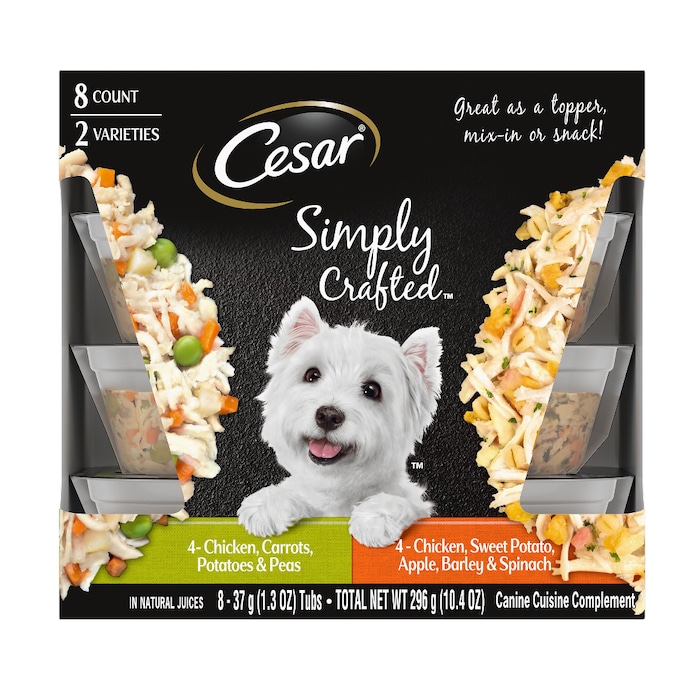
A Potato-packed Meal Topper
This variety pack has two irresistible recipes, one with potato and another with sweet potato, that’s the paw-fect way to add some extra flavor to your pup’s balanced diet.
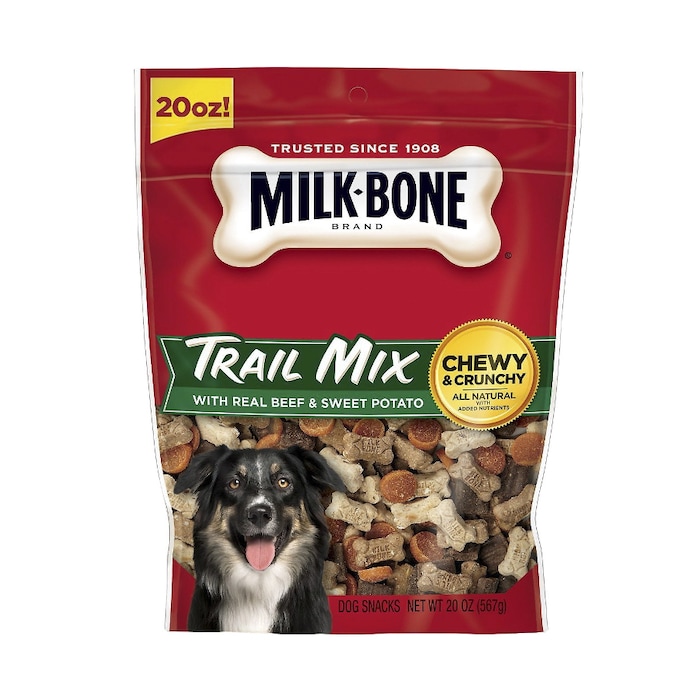
Milk-Bone Trail Mix
Your dog will love the mixture of crunchy biscuits and chewy sweet potatoes, and you’ll love that your dog is getting fiber, protein and other vitamins and nutrients!
Before incorporating any new foods into your dog’s diet, always consult with your veterinarian to make sure it’s a safe addition to your pet’s diet given their health, diet needs and current medications. Your vet will tell you if your dog can eat potatoes and the appropriate serving size. If you suspect your pet is sick, please call your vet immediately. For health-related questions, always consult your regular veterinarian when possible as they can make the best recommendations for your pet. (If you need help finding a vet near you use this link.)
Expert input provided by Dr. Amanda Williams, Chief Veterinarian and Medical Director, Furry Friends Adoption, Clinic & Ranch in Jupiter, Florida.
Share:
